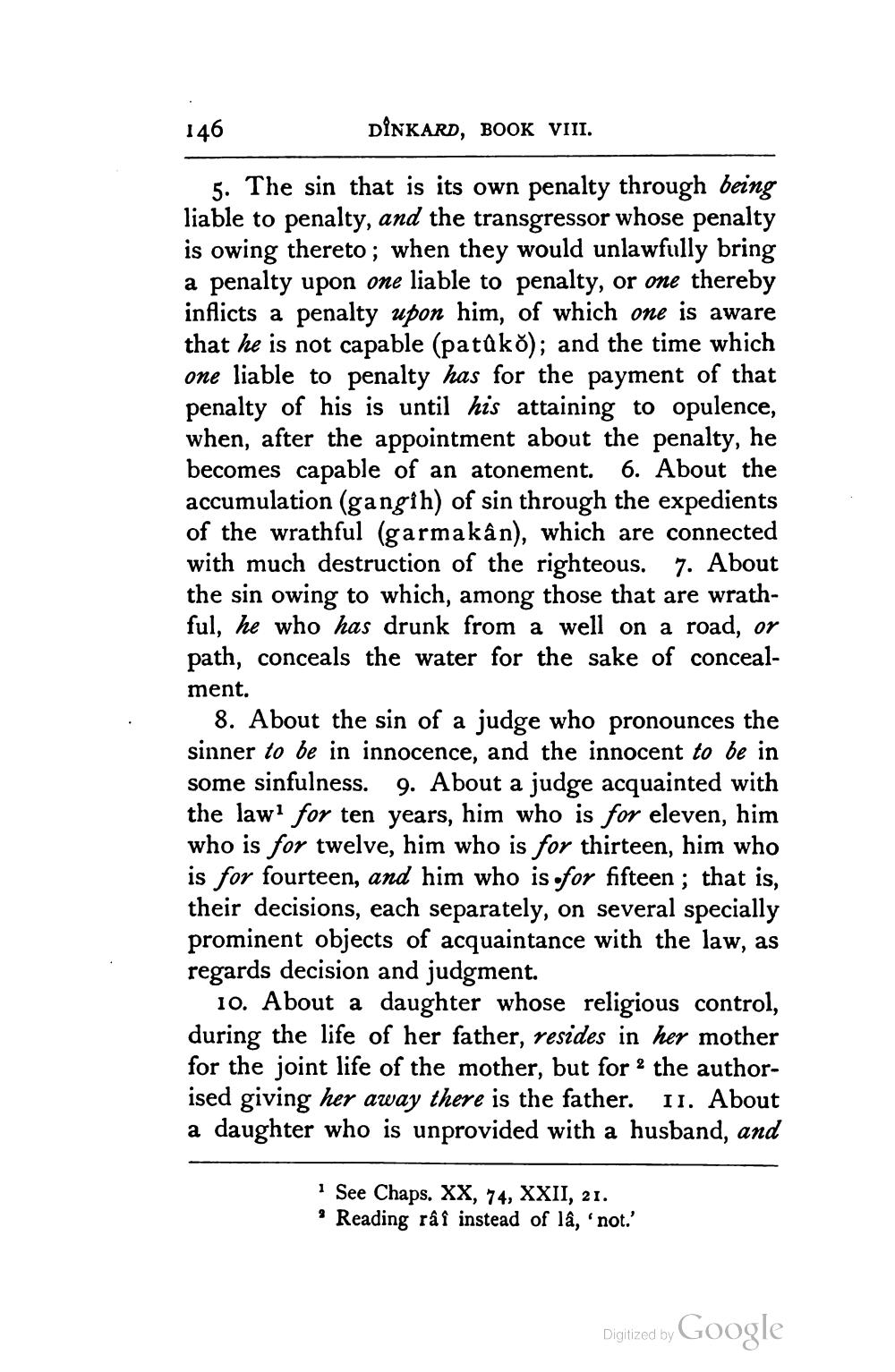________________
146
DÎNKARD, BOOK VIII.
5. The sin that is its own penalty through being liable to penalty, and the transgressor whose penalty is owing thereto; when they would unlawfully bring a penalty upon one liable to penalty, or one thereby inficts a penalty upon him, of which one is aware that he is not capable (patûkö); and the time which one liable to penalty has for the payment of that penalty of his is until his attaining to opulence, when, after the appointment about the penalty, he becomes capable of an atonement. 6. About the accumulation (gangih) of sin through the expedients of the wrathful (garmakân), which are connected with much destruction of the righteous. 7. About the sin owing to which, among those that are wrathful, he who has drunk from a well on a road, or path, conceals the water for the sake of concealment.
8. About the sin of a judge who pronounces the sinner to be in innocence, and the innocent to be in some sinfulness. 9. About a judge acquainted with the law for ten years, him who is for eleven, him who is for twelve, him who is for thirteen, him who is for fourteen, and him who is .for fifteen ; that is, their decisions, each separately, on several specially prominent objects of acquaintance with the law, as regards decision and judgment.
10. About a daughter whose religious control, during the life of her father, resides in her mother for the joint life of the mother, but for the authorised giving her away there is the father. II. About a daughter who is unprovided with a husband, and
See Chaps. XX, 74, XXII, 21. ? Reading rãi instead of lâ, 'not.'
Digitized by Google




